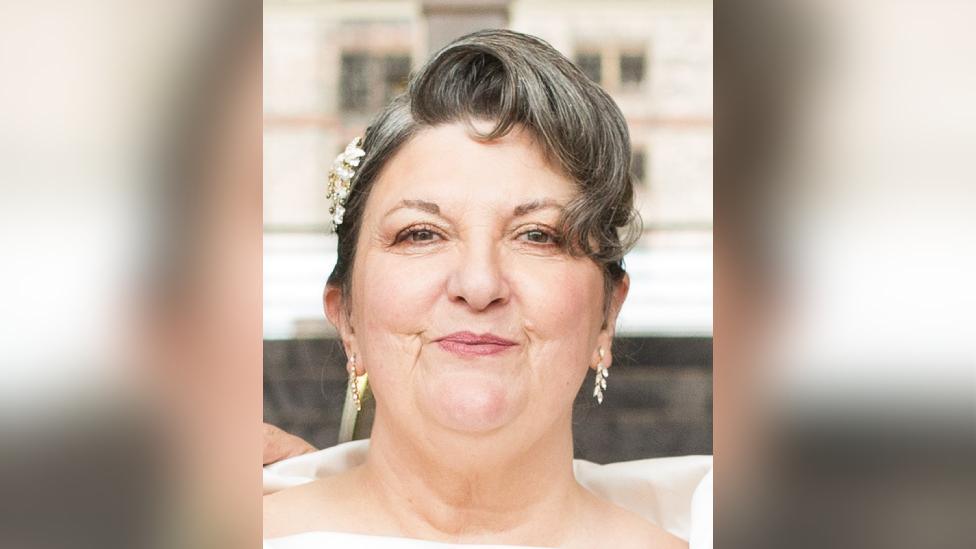'Dancing on crutches is what makes me, me'
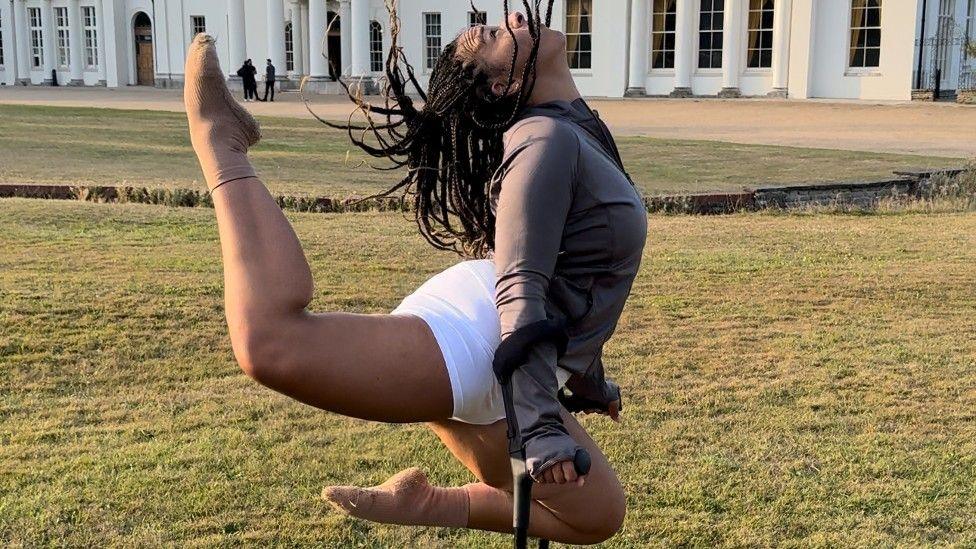
After giving up dancing because of joint pain, Sophia now performs with her crutches
- Published
From the moment she was 10 years old, Sophia Adzoa-Moore knew she wanted to perform on the West End. However, one day when she was 13 she woke up unable to walk and thought her life and dream career was over. Now at the age of 25, as she makes a return to the stage, she navigates being a disabled performer and hopes to inspire others.
"I first ended up on crutches when I was 13, I woke up and was in a whole bunch of pain from my hip… at the time I just thought it was a short-term injury but 12 years later I realised it was not," she says.
Sophia from Chelmsford, Essex, says the pain stopped her from dancing again for six or seven years.
In 2019 she enrolled in a backstage theatre course at university, which she says she took part in for three weeks before having a "wobble" and realising she wanted to be on stage, rather than behind it.
"No-one has ever said you can’t dance on crutches. It might have been implied or the industry might have given me that impression on the fact there’s not many disabled people out there, but no-one has ever said it to me flat out."
She now uses her crutches to perform and wants to see more representation on stage.
"Thirteen-year-old me didn’t even think of this as a possibility.
"It’s genuinely all I’ve ever wanted to do. I can’t think of a time when someone would have asked me what I wanted to do when I was older and [performing] would not have been the answer."
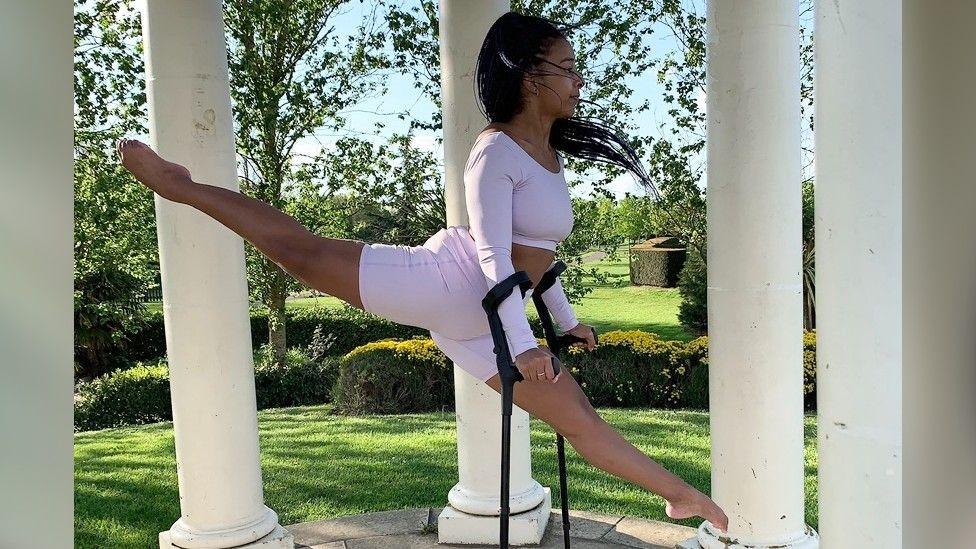
The 25-year-old will perform at the Theatre Royal Drury Lane in a production of Little Piece of You
Sophia graduated from the musical theatre college, Performance Preparation Academy in Guildford, Surrey, in July and, similar to other performers her age, she is now learning to navigate the industry.
However, for Sophia she hopes casting directors understand what she is trying to achieve and what she can offer to a production.
When auditioning, Sophia says she has to consider whether the location is accessible via public transport, whether she will have enough space in an audition room and whether she can adapt any new choreography to perform with her crutches.
"If there’s loads of people and not enough space that can be a real struggle because I need the space. I don’t want to invade anyone else’s space, because I’m not invading it just with my arm, I’m invading it with a literal stick.
"Because I used to dance without crutches, my brain is learning choreography just like non-disabled dancers. It takes a minute for me to learn the choreography and then translate it into what my body needs to do now and sometimes that needs an extra minute."
Sophia says she wants to see more open communication between disabled dancers and others working in the performance industry.
"It’s not an elephant in the room. Everyone can see I’m on crutches. You don’t have to pretend I’m not disabled, it’s very obvious and that’s OK.
"That’s what makes me, me and I’ve completely accepted it now."
'Start to open eyes'
The 25-year-old will be performing in a Little Piece of You at the Theatre Royal Drury Lane, London, on Thursday and Friday.
The show is an atypical musical intertwining family drama, external with modern rock and pop and Sophia says it is not a production where she will be stood in the corner doing a "step click".
"I can’t even believe I am doing it. I’m going to be on Drury Lane. Only two or three years ago I was watching Frozen… Only six or seven years ago I was watching 42nd Street – which at the time was my dream and now that’s going to be me.
"I’m hoping this show will start to open the eyes of people… and maybe that will trickle down to the people who are in the audition rooms. You never know who is coming to watch these shows."
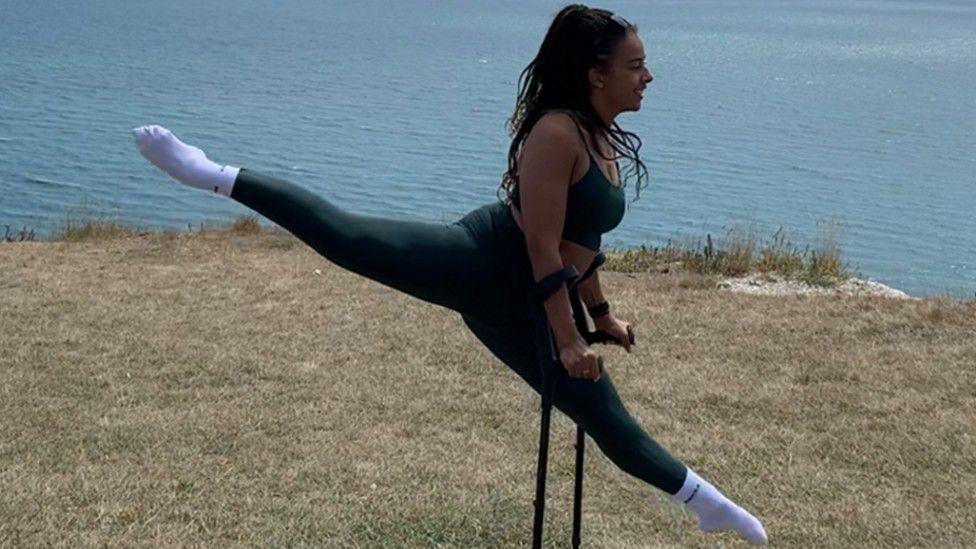
Sophia says she hopes the theatre industry will support greater representation among dancers
After 10 years of living with mobility pain, Sophia was recently diagnosed with Hypermobile Ehlers-Danlos syndrome (EDS). She says it was validating and reassuring to find out a name for the pain she has been experiencing.
The condition, which affects, external connective tissue, can leave people with hypermobility and painful and unstable joints which dislocate easily.
"It's doesn't change anything. There is no cure... I am OK with my life. Yes I'm in a bit of pain and life is very different to how one might have imagined it when I was five, and I'm OK with that."
Sophia says she wants to see greater representation of disability within the industry and accessibility in theatres, so that the arts can be enjoyed by all.
"We are going in the right direction. I am an avid theatre goer and a performer so I know both sides of it. It’s improving. I’m working and that maybe 10 years ago might not have been a possibility so that’s a start.
"Lots of theatres have stairs, these are old buildings but working round that is something that over time will hopefully improve. In terms of audiences, working on the amount of stairs… more and more theatres are getting lifts put in which is great because otherwise you severely limit the places disabled people can sit."
'Dancing brings me joy'
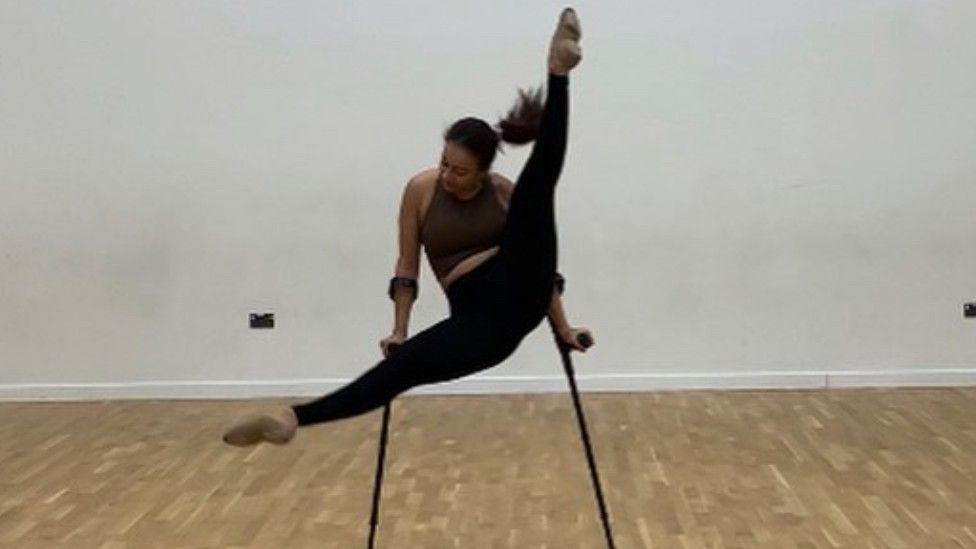
The 25-year-old says there were a limited number of disabled dancers to look up to when she was younger
For Sophia, performing in Little Piece of You is only the beginning. She hopes to inspire more people to enter theatre and be the role model she wanted to look up to when she was younger.
"It’s really hard trying to do something that’s not been done before. There’s no-one to look up to.
"Dancing still, as it has always done, brings me so much joy and the added bonus of the crutches really is just what makes me, me now."
A spokesperson from Arts Council England said: "We always strive to be more inclusive, which is why we are encouraging more diverse and disabled applicants to apply for our funding but we know there’s more to be done."
It added that it was working with "theatres to embed disability and access across stage and backstage, ensuring that disabled people are integral including how theatres make and present productions".
The BBC contacted Equity, the performing arts and entertainment trade union, for comment.
Get in touch
Do you have a story suggestion for Essex?
Follow Essex news on BBC Sounds, Facebook, external, Instagram, external and X, external.
Related topics
- Published28 October 2024
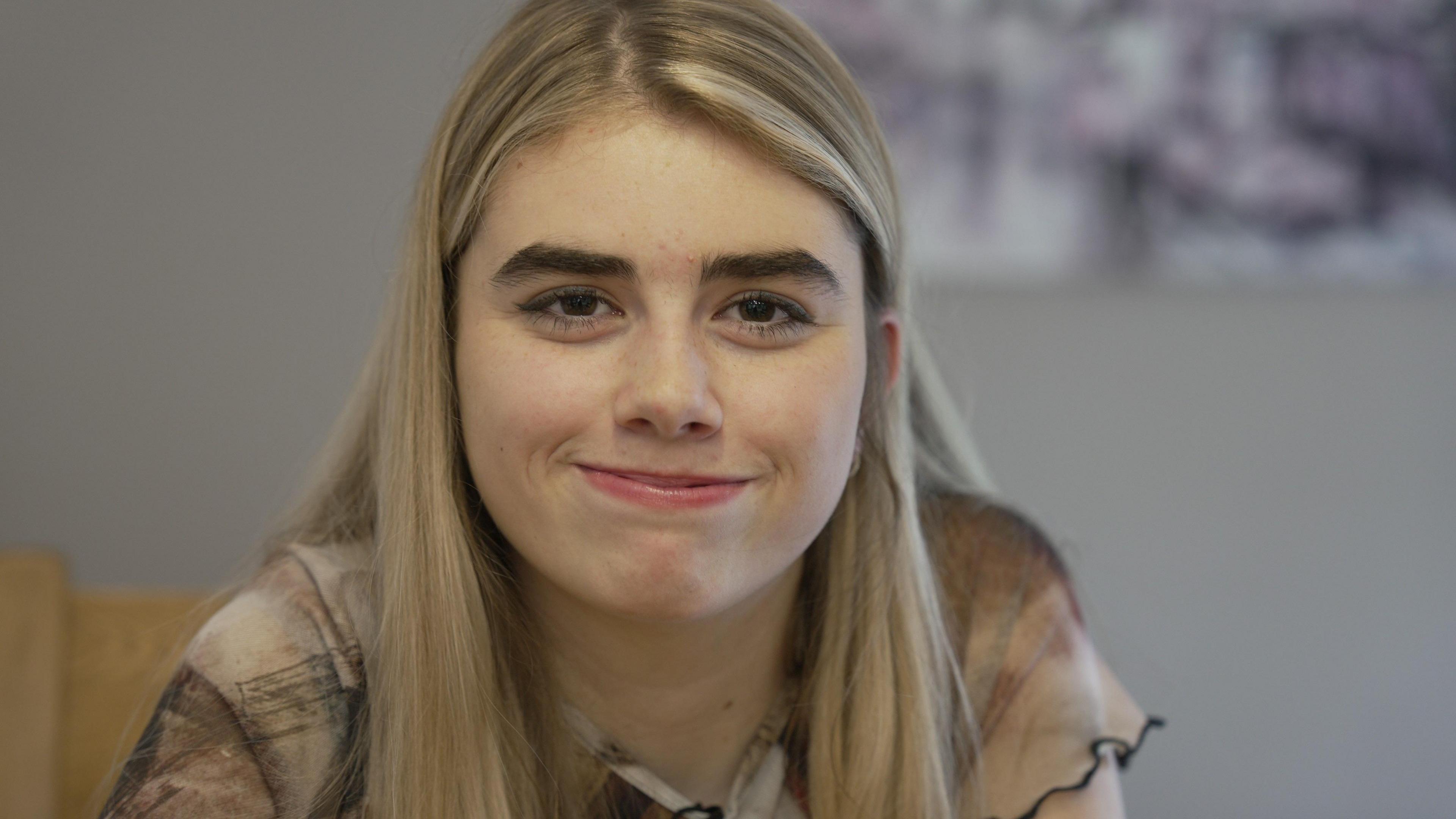
- Published18 April 2024
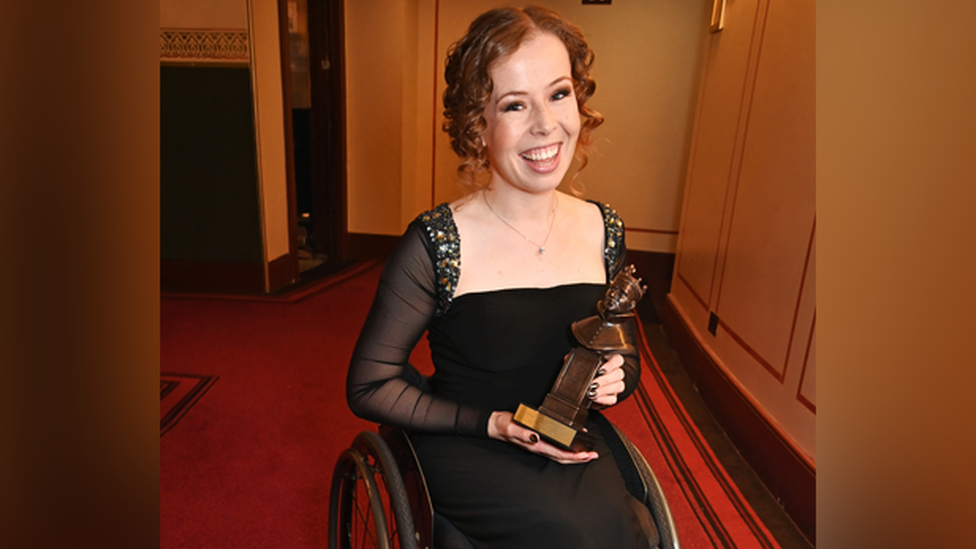
- Published25 February 2023
